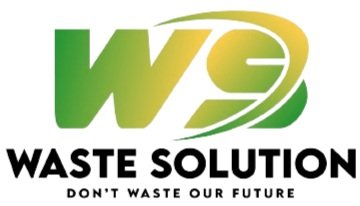Environmental Impact of Improper Waste Disposal
Improper waste disposal is a significant environmental issue that has far-reaching consequences.
Improper waste disposal is a significant environmental issue that has far-reaching consequences. Professional waste removal services help mitigate these impacts by providing responsible, efficient waste management solutions. Understanding the environmental effects of improper waste disposal highlights the importance of utilizing professional waste removal services.
Soil Contamination
Improperly disposed waste ends up in landfills, and hazardous chemicals can leach into the soil. These contaminants include heavy metals, pesticides, and solvents, which can degrade soil quality and harm plant life. Contaminated soil affects the food chain, posing health risks to humans and animals. Professional waste removal companies use safe disposal methods to prevent soil contamination, protecting the environment and public health.
Water Pollution
Water pollution is another severe consequence of improper waste disposal: chemicals and hazardous materials from waste ooze into groundwater or runoff into rivers, lakes, and oceans. Polluted water sources threaten aquatic ecosystems, leading to the death of fish and other marine life. Contaminated water can also make its way into the human water supply, posing serious health risks. Proper waste disposal practices, facilitated by waste removal companies, are essential to prevent water pollution and safeguard aquatic life and human health.
Air Pollution
Burning waste is a common practice in areas lacking proper waste disposal infrastructure. This practice releases harmful pollutants into the atmosphere, including carbon dioxide, methane, and toxic chemicals. They contribute to air pollution, which can induce respiratory problems, cardiovascular diseases, and other health issues in humans. Moreover, methane is a potent greenhouse gas that contributes significantly to climate change. Professional waste removal services help reduce air pollution by disposing of waste through environmentally friendly methods, such as recycling and waste-to-energy technologies.
Wildlife Harm
Improper waste disposal poses a direct threat to wildlife. Animals may ingest or become entangled in waste, leading to injury or death. Plastic waste, in particular, is a major hazard to marine and terrestrial animals. Ingested plastic can block digestive tracts, while entanglement can cause suffocation or restrict movement. Professional waste removal companies help mitigate these risks by implementing proper waste segregation and disposal practices, reducing the amount of waste that ends up in natural habitats.
Greenhouse Gas Emissions
Improper waste disposal contributes to the emission of greenhouse gases, which drive climate change. Landfills are significant sources of methane, a greenhouse gas much more potent than carbon dioxide. Organic waste decomposition in landfills produces this and other harmful gases. Professional waste removal services employ composting and waste-to-energy conversion techniques to manage organic waste effectively, reducing greenhouse gas emissions and contributing to climate change mitigation efforts.
Public Health Risks
Improper waste disposal creates breeding grounds for disease-carrying pests such as rodents, mosquitoes, and flies. These pests can spread diseases like dengue fever, malaria, and leptospirosis, posing significant public health risks. Professional waste removal companies implement regular waste collection and disposal schedules, preventing waste accumulation and reducing pest infestations and disease outbreaks.
Depletion of Natural Resources
Improper disposal of recyclable materials leads to the depletion of natural resources. Items such as paper, plastic, metal, and glass can be recycled and repurposed, thus reducing the need for raw material extraction. However, if improperly disposed of, these materials contribute to resource depletion and increased energy consumption for producing new products. Professional waste removal services prioritize recycling and resource recovery, promoting sustainability and conserving natural resources.
Economic Costs
The environmental impact of improper waste disposal also translates into significant economic costs. Contaminated soil and water sources require expensive remediation efforts. Health issues arising from pollution increase healthcare costs. Additionally, the loss of biodiversity and ecosystem services has long-term economic implications. Investing in professional waste removal services can mitigate these costs by promoting efficient waste management practices and preventing environmental degradation.
Promoting Sustainable Practices
Professional waste removal companies are essential in promoting sustainable waste management practices. They educate and provide resources to communities and businesses on proper waste disposal, recycling, and composting. These companies help create a culture of sustainability and environmental stewardship by raising awareness and encouraging responsible waste management.
Improper waste disposal has significant environmental impacts, including soil contamination, water and air pollution, harm to wildlife, greenhouse gas emissions, public health risks, and resource depletion. Professional waste removal services are crucial in mitigating these impacts by providing responsible waste management solutions. By promoting sustainable practices and utilizing advanced waste disposal methods, these companies play a vital role in protecting the environment and providing a healthier future for all.
Waste Solution is veteran-owned and operated waste removal company offering a wide range of services, from junk removal, residential dumpster rental, appliance removal, and carpet removal to estate cleanouts and furniture removal in Maricopa County. Call today for responsible and safe waste removal solutions.

